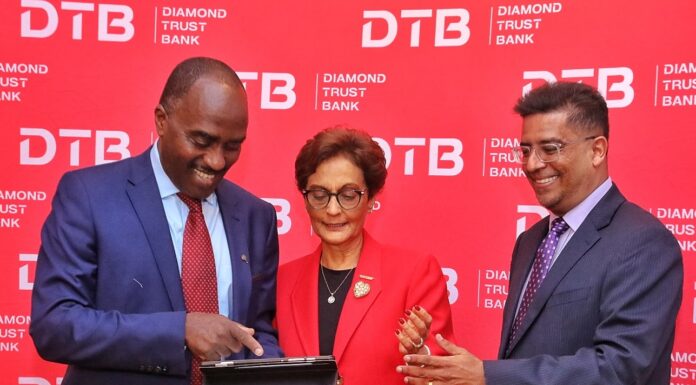Vava Angwenyi’s coffee trading company seeks to make coffee farming a lucrative economic activity for every smallholder coffee farmer
By Surpna Goswani and Amos Wachira
Coffee was Kenya’s top foreign exchange earner, but the tide had turned against it. In the vast highlands of Central Kenya, the crop is in desolate state; its beans fetch a meagre amount in the market and few farmers are keen in investing in coffee farming. The dire picture is painted across most coffee growing zones. Yet, in the international market, Kenyan coffee is worth a fortune. While foreign buyers buy it at a premium, the money ends up in the pockets of a few brokers.
This appalling picture prompted Vava Angwenyi to found a company that democratizes the coffee industry in Kenya.
After completing her studies in Canada in 2009, she returned home with an ambition to change the coffee industry in Kenya. She rightly felt that it was dominated by foreigners, yet the producers, including small-scale Kenya farmers were largely ignored.
“Kenyan coffee is revered abroad. I was surprised to learn that little was being done to reward local farmers for their effort,” she says.
Ironically, she says, most local farmers had never tasted Kenyan coffee. She founded Vava coffee in 2009 to make a difference.
At inception, Vava Coffee was a coffee shop. Angwenyi quickly realized that her passion was not to serve cups of coffee but to empower the coffee farmer. The company works closely with coffee farmers, educating them on how to increase their yield. It also seeks to get more women into the coffee industry. For the last decade, the company has worked directly with over 30,000 farmers. It educates them on new methods of increasing yields.
Beyond the gloomy picture of desolate small holder coffee farms in Central Kenya is a multi billion coffee market. Tellingly, coffee is one of the most popular beverages in the world, with an estimated 2.25 billion cups being consumed on a daily basis, globally. The most popular strain is Arabic, farmed in Kenya, and considered as the world’s best.
Although most of the world’s Arabica coffee is produced in Kenya, most Kenyans never get to drink it.
“93% of this coffee is exported.”
70% of all coffee grown in Kenya is farmed by smallholder farmers. Yet, these farmers struggle to make ends meet; they don’t have the power to control their coffee, nor the money.
Vava Coffee came in to plug the information and market access gap that existed in the industry. It aims to link smallholder coffee farmers to markets.
Angwenyi says that smallholder coffee farmers have been ignored for long.
That’s why she’s passionate about their development. She makes sure they are aware of the opportunities available to them.
The problem, she says, is that not many Kenyans drink their own coffee. Her company has had workshops where they allow farmers to taste their coffee. Once they do, she says, their perception changes. Her company is involved in training farmers, and trading their coffee to help them earn better returns. Recently, she developed a direct to consumer arm that enables farmers to sell smaller amounts of coffee.
Inadequate education about the coffee value chain is one of the biggest impediments that stifle the success of smallholder coffee farmers.
Most farmers, says Angwenyi, are not aware they could get a direct sale licence to beat the middlemen.
Angwenyi says that working with smallholder farmers wasn’t an easy ride. Some were reluctant to work with her because she “is a woman.”
She wasn’t surprised; the industry is dominated by men.
To change this narrative, she’s getting more women to handle the business side of coffee.
Having worked with smallholder farmers for a decade, she says the scales could easily tip in favor of farmers if more young people were interested in running affairs in the industry. She says that as coffee farmers age, they need to transition their farming businesses to the youth for continuity.
She also notes that the industry lacks critical data about coffee, as there’s a disconnect between producers, consumers and barristas.
As a parting shot, she says that coffee is a lucrative business, but needs to be balanced. It shouldn’t be lopsided to favor the consumer and the buyers while ignoring the producers.



















